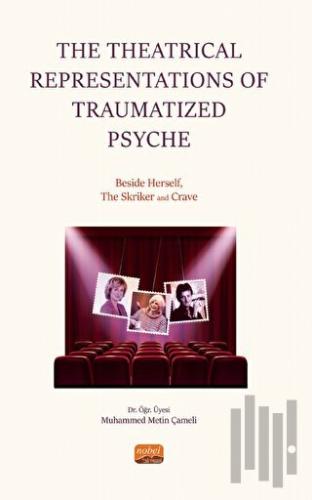
This study aims to explore various theatrical strategies employed for the representation of the psychic trauma in three selected plays written after the 1990s: Sarah Daniel's Beside Herself, Caryl Churchill's The Skriker and Sarah Kane's Crave. These three playwrights, who are among the most distinguished playwrights of the Contemporary British Theatre, view theatre as an appropriate space where trauma can be articulated. In their articulation of trauma through theatre, they cling to the idea that different theatrical devices they utilize serve the purpose of consolidating the ineffectiveness of verbal language to transmit trauma onto stage. The disruption in the cognitive mechanisms of trauma victims in these plays is presented by means of this alternative dimension of regarding theatre as a tool of exposing what remains unseen and of speaking what remains unspeakable. Under the guidance of trauma theories postulated by Sigmund Freud, Jacques Lacan, Julia Kristeva, and Cathy Caruth, this study will also attempt to show that these theories contribute to the exploration of the traumatic experiences of the characters in the plays under discussion to a great extent.
This study aims to explore various theatrical strategies employed for the representation of the psychic trauma in three selected plays written after the 1990s: Sarah Daniel's Beside Herself, Caryl Churchill's The Skriker and Sarah Kane's Crave. These three playwrights, who are among the most distinguished playwrights of the Contemporary British Theatre, view theatre as an appropriate space where trauma can be articulated. In their articulation of trauma through theatre, they cling to the idea that different theatrical devices they utilize serve the purpose of consolidating the ineffectiveness of verbal language to transmit trauma onto stage. The disruption in the cognitive mechanisms of trauma victims in these plays is presented by means of this alternative dimension of regarding theatre as a tool of exposing what remains unseen and of speaking what remains unspeakable. Under the guidance of trauma theories postulated by Sigmund Freud, Jacques Lacan, Julia Kristeva, and Cathy Caruth, this study will also attempt to show that these theories contribute to the exploration of the traumatic experiences of the characters in the plays under discussion to a great extent.
| Taksit Sayısı | Taksit tutarı | Genel Toplam |
|---|---|---|
| Tek Çekim | 111,65 | 111,65 |










